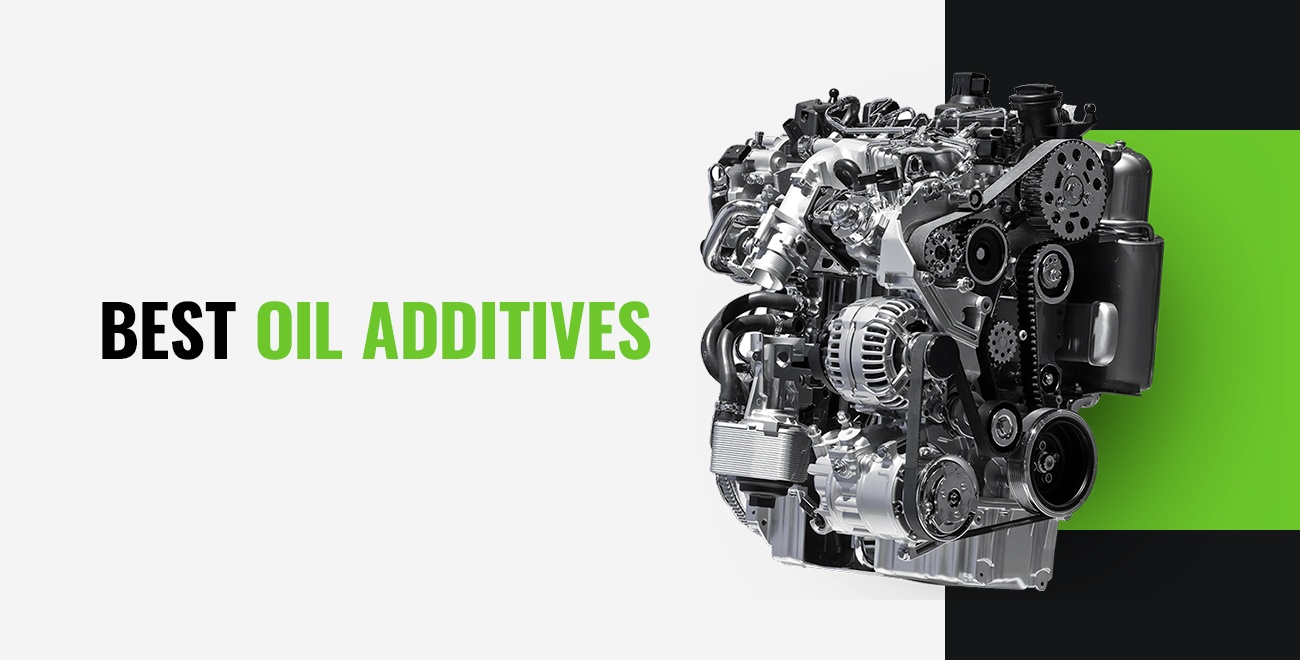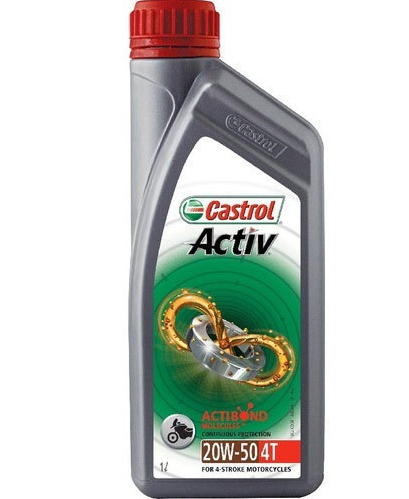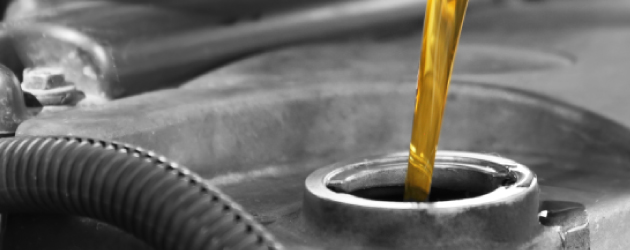Engine oil additives include detergents, dispersants, antioxidants, and viscosity modifiers. Other common additives are corrosion inhibitors, foam inhibitors, and anti-wear agents.
Engine oil plays a crucial role in protecting and enhancing the performance of your vehicle’s engine. These oils often come fortified with a variety of additives, each designed to perform specific functions that contribute to the longevity and efficiency of your engine.
The additives help to keep the engine clean, prevent the build-up of sludge, and ensure that all moving parts are lubricated, thereby reducing friction and wear. They also stabilize the oil’s viscosity in different temperatures and operating conditions. Keeping the oil free from foam and protecting engine parts from corrosion are other essential functions these additives serve. The inclusion of additives in engine oil is a critical aspect of modern automotive maintenance, ensuring engines run smoothly and have a longer service life.

Credit: www.machinerylubrication.com
Introduction To Engine Oil Additives
Welcome to the world of engine oil additives, a key player in your engine’s health and efficiency. While oil is the lifeblood of any engine, the additives within it are like a battalion of tiny soldiers, each with a special role to protect and improve the performance of your vehicle.
The Role of Additives in Engine Performance
Think of additives as the secret sauce that keeps your engine running smoothly.
- Friction reducers ensure moving parts glide with ease.
- Detergents keep the insides clean from sludge and deposits.
- Antioxidants help prevent oil breakdown caused by heat.
- And that’s just the start; each additive plays a unique part in maintaining performance.
Major Groups of Additives in Engine Oils
Let’s dive into the core groups of additives commonly found in engine oils:
| Group | Function |
|---|---|
| Viscosity Modifiers | Stabilize oil thickness across temperatures. |
| Dispersants | Keep contaminants suspended in oil. |
| Corrosion Inhibitors | Protect metal parts from rust and corrosion. |
| Anti-Wear Agents | Shield surfaces from wear and tear. |
Viscosity Index Improvers
Viscosity Index Improvers play a crucial role in engine oil performance. These additives help oil maintain optimal thickness across different temperatures. Whether it’s a cold start or a hot day, these improvers ensure your engine stays protected.
Enhancing Oil Stability Across Temperature Ranges
Oils without Viscosity Index Improvers can become too thin when hot or too thick when cold. Improvers prevent this by adapting to temperature changes. This keeps oil stable, ensuring seamless engine performance.
Polymer Compounds in Viscosity Modifiers
Polymers are the heart of Viscosity Index Improvers. These large molecules unwind as temperature rises, thickening the oil. With lower temperatures, they coil back, thinning the oil. This smart action helps the engine run smoothly in any weather.
- Viscosity Index Improvers protect your engine.
- They adjust oil thickness based on temperature.
- Polymers in the oil change shape to maintain consistency.
Detergents And Dispersants
Detergents and Dispersants play a crucial role in ensuring your engine runs smoothly and efficiently. Like soap in water, these additives work tirelessly to keep your engine’s internals clean. They are essential soldiers in the fight against the build-up of harmful substances.
Keeping The Engine Clean from Sludge
It’s vital to stop sludge from taking over your engine’s surfaces. Sludge equals friction, and friction leads to wear. Detergents and Dispersants are uniquely formulated to maintain a clean environment within your engine’s components. They serve to:
- Break down contaminants: They split sludge into smaller particles.
- Prevent particle agglomeration: They keep these particles separated.
- Shield surfaces: Surfaces stay clean for optimal performance.
Neutralizing Acids and Preventing Deposits
Acids in your engine oil? It sounds alarming, but they form as a natural byproduct of combustion. These additives have a special job:
- Neutralize acids: Detergents react with acids to keep the oil less corrosive.
- Prevent deposits: Clean engines don’t let deposits stick around.
- Combat corrosion: Protect metal parts from acid’s harmful effects.
Anti-wear Agents
Engine oil does more than just lubricate; it contains special ingredients called anti-wear agents. These additives play a critical role in minimizing the friction that can lead to engine damage over time. Understanding anti-wear agents is essential for anyone interested in extending the life of their vehicle’s engine.
Reducing Wear and Tear of Engine Parts
Frequent engine use leads to wear and tear. But adding the right anti-wear agents to engine oil can significantly reduce this damage. These agents form a protective barrier on engine surfaces. This prevents direct metal-on-metal contact. With this layer, engines can run smoothly for longer periods.
Common Types of Anti-Wear Chemicals
Different chemicals work as anti-wear agents. Each has unique properties. The following are widely used:
- Zinc dialkyldithiophosphate (ZDDP): A major player in engine protection, ZDDP forms a film on engine parts to shield against wear.
- Phosphorus: An element that bolsters the anti-wear capabilities of ZDDP.
- Molybdenum: Offers solid lubrication, staying put even under high-pressure conditions. (Read More: Ep Additives)
All these agents work together to keep engines running at peak performance.
Antioxidants
Antioxidants in engine oil are essential for maintaining oil quality. These additives work tirelessly to protect your engine from the unseen enemy of oxidation. Think of them as the guardians against premature deterioration, keeping your engine oil fresh and effective for longer periods.
Preventing Oil Oxidation
The right antioxidants in engine oil stop unwanted chemical reactions. When oil oxidizes, it becomes thick and sludgy. Antioxidants keep the oil smooth and clean, ensuring it flows easily around your engine. This helps in maintaining optimal performance even under the stress of high temperatures.
Impact On Oil Lifespan and Engine Health
Healthy engine oil equals a healthy engine. By preventing oxidation, antioxidants extend oil viability, meaning fewer changes and better engine protection. This results in a win-win: ongoing savings on maintenance costs and the joy of a smoother running vehicle.
- Enhanced Performance: Guard against power loss and maintain engine efficiency.
- Reduced Wear: Protect engine parts from the friction of everyday use.
- Improved Stability: Maintain oil’s protective qualities in diverse conditions.
Corrosion Inhibitors
Engine oil is not just a lubricant. It contains essential additives that protect your car’s engine from damage. Corrosion inhibitors are crucial among these additives. They shield engine components from the harmful effects of oxidation and corrosion. This ensures the engine’s longevity and optimal performance. Let’s dive deeper into how corrosion inhibitors work to safeguard metal surfaces within your engine.
Protecting Metal Surfaces from Corrosion
Corrosion inhibitors provide a chemical barrier that protects metal parts. They prevent moisture and corrosive substances from reaching metal surfaces. Think of it as a force field around your engine’s components. With these inhibitors, parts like the crankshaft, camshaft, and cylinders remain free from rust and wear. Here’s a general idea of how they function:
- Neutralizing acids: These additives keep engine oil’s acidity in check.
- Water displacement: They push water away from metal parts, reducing rust risk.
- Forming protective layer: A thin layer forms on surfaces, blocking corrosive agents.
Chemistry Behind Corrosion Inhibition
The chemistry of corrosion inhibitors might seem complex, but it’s about creating balance. When added to oil, these compounds interact with metal surfaces at a molecular level. They often contain elements like:
| Element | Role in Inhibition |
|---|---|
| Phosphorus | Forms a protective film. |
| Zinc | Works with phosphorus to strengthen protection. |
| Sulfur | Helps neutralize acids. |
The combination of these elements makes up the corrosion inhibiting formula. When they bind to metal, they exclude moisture and limit oxidative reactions. This protection is crucial for engines operating under different weather conditions. It ensures that no matter the environment, your engine remains secure and efficient.
Friction Modifiers
Understanding the role of friction modifiers in engine oil is key to a well-maintained engine. These special additives work to reduce the friction between moving parts. Less friction means less wear and heat. This leads to a smoother, more efficient operation. Let’s dive deeper into how these modifiers play a crucial part in engine health.
Enhancing Fuel Economy by Reducing Friction
Friction modifiers are pivotal in enhancing fuel economy. Lower friction results in smoother engine performance and better gas mileage. By reducing the energy lost due to friction, your engine doesn’t have to work as hard. This process leads directly to fuel savings.
- Decreased resistance among engine components.
- Less energy used, leading to better fuel economy.
- Longer engine life due to reduced wear
Organic Compounds as Friction Reducers
Organic compounds in engine oil serve as friction reducers. They form a slippery layer on metal surfaces. This layer helps engine parts glide smoothly against each other.
| Compound Type | Friction Reduction | Benefits |
|---|---|---|
| Molybdenum Disulfide | High | Reduces wear, withstands pressure. |
| Graphite | Moderate | Good at high temperatures |
| Zinc Dialkyl Dithiophosphate (ZDDP) | High | Prevents oxidation, corrosion. |

Credit: www.facebook.com
Pour Point Depressants
In the realm of engine oil, ‘Pour Point Depressants’ play a crucial role. These additives help maintain oil fluidity in freezing temperatures. Without them, your vehicle’s oil might turn sluggish, compromising engine protection when you start your car on a cold morning.
Ensuring Oil Flow at Low Temperatures
Pour point depressants ensure that engine oil flows smoothly, even during winter. The pour point is the lowest temperature at which an oil can still pour. With these additives, your engine stays safe and lubricated, despite the chill.
- Oils without pour point depressants thicken at low temperatures.
- Thick oil can cause engine wear during start-up.
- Pour point depressants keep the oil flowing, protecting the engine.
Mechanism Of Pour Point Depressants
Pour point depressants work by minimizing the formation of wax crystals in oil. These wax crystals thicken the oil. The additives interfere with the crystal growth, allowing the oil to remain fluid.
| Temperature Drop | Without Additives | With Pour Point Depressants |
|---|---|---|
| Freezing Cold | Oil thickens quickly | Oil stays pourable. |
| Mild Cold | Oil begins to thicken | Minimal effect on oil. |
In turn, these depressants extend the oil’s effective temperature range. The result is an engine that starts easily and remains protected, no matter how low the mercury dips.
Foam Inhibitors
Engine oil needs to lubricate effectively without unwanted side effects. One such effect is foaming. When oil foams, it can’t lubricate parts well. This is where foam inhibitors come into play. This article dives into what they are and why they’re crucial.
Prevention Of Foam Formation
Foam inhibitors are specially designed to combat the foaming process. They increase the oil’s surface tension. This prevents air bubbles from forming. The result is a smoother, more efficient engine operation.
Silicone-based Defoaming Agents
Silicone-based defoaming agents are popular in the automotive industry. They effectively disperse tiny air bubbles. They ensure engines run at peak performance. Let’s break down how they function:
- Quick action on air bubbles.
- Reduction in foam formation.
- Minimal impact on engine oil properties.
Choosing The Right Additives for Your Engine
The health of your engine hinges on the quality and type of oil coursing through its mechanical veins. Additives in engine oils are akin to vitamins for humans. They fortify and protect, ensuring a longer and more efficient life for your engine. Let’s focus on how to pick the right additives tailored to your car’s specific needs.
Guidelines For Selecting Engine Oil
Selecting the ideal engine oil requires understanding the types of additives that complement your car’s engine:
- Detergents: Keep the engine clean by preventing deposits.
- Dispersants: Help prevent sludge formation.
- Anti-wear Agents: Protect engine parts from metal-on-metal wear.
- Friction Modifiers: Reduce friction for better fuel economy.
- Antioxidants: Prevent oil oxidation and thickening.
- Corrosion Inhibitors: Shield metal parts from corrosion and rust.
- Viscosity Index Improvers: Stabilize oil thickness across temperature changes.
- Foam Inhibitors: Keep oil foaming at bay, ensuring consistent lubrication.
The Impact of Driving Conditions on Additive Requirements
Different driving environments demand specific additives for optimal engine performance.
| Driving Condition | Additive Needs |
|---|---|
| City Driving | More detergents and dispersants to combat stop-and-go residue. |
| High-Performance | Enhanced anti-wear agents and friction modifiers. |
| Cold Climates | Antioxidants and viscosity stabilizers for low temperatures. |
| Hot Climates | Corrosion inhibitors and foam inhibitors for high heat. |
The Future of Engine Oil Additives
The Future of Engine Oil Additives points towards an era where efficiency, sustainability, and high performance are paramount. Ongoing research and technological progress promise to transform the additives that play a pivotal role in the health and functionality of engines. Let’s delve into the innovations and regulatory landscapes shaping this future.
Advancements In Additive Technologies
Emerging trends in additive technologies are paving the way for more robust and adaptive engine oils. With a focus on extending oil life and enhancing engine protection, these advanced additives are critical to meeting the demands of modern high-performance engines. Recent breakthroughs include:
- Nanotechnology: Nano-additives enhance wear protection.
- Friction modifiers: These compounds reduce engine wear and improve fuel economy.
- Dispersants: Advanced dispersants help keep engines clean from sludge.
- Detergents: New formulations combat high-temperature deposits.
New additive formulations also work to address specific engine conditions, such as cold starts or high-load operations, providing tailored performance benefits.
Environmental Considerations and Regulations
Environmental sustainability is a driving force behind the development of new engine oil additives. The push for greener technologies is reflected in strict regulatory standards, aiming to reduce emissions and minimize environmental impact. Key points include:
- Biodegradability: Additives are increasingly sourced from renewable materials.
- Toxicity reduction: Harmful chemicals are being phased out.
- Lower volatility organic compounds (LVOCs) are favored to decrease evaporative loss.
Regulations are setting new benchmarks for performance while ensuring engine oils are more environment friendly. Innovators in the field are actively working to meet and exceed these standards, delivering solutions that both protect engines and our planet.

Credit: www.hotshotsecret.com
Frequently Asked Questions of Types of Engine Oil Additives: What Additives Are In Engine Oil?
What Are the Additives Used in Engine Oil?
Engine oil additives include detergents, dispersants, antioxidants, friction modifiers, antiwear agents, and viscosity index improvers. These components enhance performance and protect the engine.
What Additives Are in High Mileage Oil?
High mileage oil typically contains additives such as conditioners, detergents, friction modifiers, and viscosity index improvers. These compounds help rejuvenate seals, clean engine components, reduce wear, and maintain oil viscosity.
What Does an Oil Additive Package Usually Include?
An oil additive package typically includes detergents, dispersants, anti-wear agents, and antioxidants to enhance engine oil performance.
What Are the Additive Metals in Oil?
Additive metals in oil include zinc, phosphorus, calcium, magnesium, and molybdenum. These elements enhance lubricant performance and engine protection.
Conclusion
Understanding the different engine oil additives is crucial for vehicle maintenance. These agents combat corrosion, improve viscosity, and cleanse engine internals. Choosing the right combination ensures peak engine performance and longevity. For informed decisions on your car care, remember the functions of these vital additives.
Keep your engine running smoothly by selecting the optimal oil blend for your vehicle’s needs.


